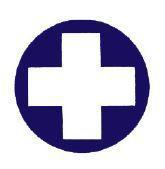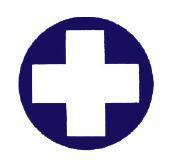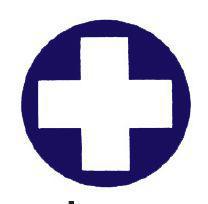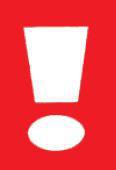SAS Urban Survival Handbook (118 page)
Read SAS Urban Survival Handbook Online
Authors: John Wiseman
Tags: #Health & Fitness, #Reference, #Survival, #Fiction, #Safety, #Self-Help, #Personal & Practical Guides, #General, #Survival Skills

Drugs
Discoveries have also been made in the development and production of new drugs. More is now known about the ways in which many drugs work—this means they can be made safer and more effective. Modern biochemistry has made it possible to create synthetic drugs, but we still have an enormous amount to learn about the usefulness of substances found in ‘nature’. More and more naturally-occurring substances are being ‘discovered’ and put to use.
A better understanding of how the body works has led to the ability—again only recently achieved—to ‘tailor-make’ drugs for specific purposes. This fine-tuning can result in fewer harmful side effects.
Surgery
Many surgical procedures have been superseded by lessinvasive techniques.
Lithotripsy
This is a non-surgical treatment that uses ultrasound to pulverize deposits such as kidney stones in the body. Repeated pulses of high-energy ultrasound waves are focused on a stone to break it down into particles small enough to be passed out of the body in urine or faeces.
Laser treatment
The benefit of the laser—a narrow beam of intense energy—is that it can be used to make highly exact and fine cuts in tissue. At the same time, it cauterizes severed blood vessels, thus sealing them and stemming blood flow. Extremely delicate operations, such as eye surgery, have been made safer and faster by such exact treatment.
Endoscopy
Not only does endoscopy have a diagnostic use, it has also made it unnecessary to ‘open up’ patients for certain surgical procedures. Special tools can be attached to thin endoscopes, allowing surgeons to carry out surgery inside the body—sometimes through only tiny incisions.
When more traditional surgery is required, it needn’t be at all dangerous or frightening. There have been significant discoveries and improvements—a greater understanding of body tissues and the development of new materials, such as special plastics and carbon fibres. Surgical implants can be carried out with a much greater degree of success. Where arthritis has led to joint damage, it is often possible to replace an affected joint with an artificial one. Hip-joint replacement now lasts for ten or more years in 70 per cent of cases.
Transplants
There have been remarkable developments in the field of transplant surgery. In the early days, only organ transplants between identical twins were possible, because the body would only accept an organ that essentially matched the original. These days the problems of rejection have been reduced by the development of various drugs. Kidney, heart and lung transplants are carried out every year, with varying degrees of success. However, finding a suitable donor remains the first hurdle. Carrying a donor card means your organs could be used to give another person life in the event of your death.
ALTERNATIVES
 Orthodox medicine is not the only way of treating ill health. There have been other methods in use for centuries. Many people have
Orthodox medicine is not the only way of treating ill health. There have been other methods in use for centuries. Many people have
become suspicious of orthodox medicine. There have been instances where great damage has been caused by ‘unsafe’ drugs prescribed before sufficient testing has been done. Side effects of many major drugs may be as bad as or worse than the symptoms they were supposed to cure. It is recognized that no medication is without side effects, however slight.
Most alternative medicines and therapies are seen as ‘kinder’ or ‘gentler’ treatments. It’s no longer fashionable to sneer at alternative medicine—more properly called complementary or holistic medicine. It is usually the intention of such practitioners to treat the whole person or the root cause of the disease—not only the symptoms.
Many so-called ‘primitive’ societies evolved complex systems of medical treatment, which have helped them for centuries. Most of these were based on plants—valuable medical resources that are now at risk with the destruction of the habitat in which they grow. Herbalists created many of the orthodox medicines used today—common drugs such as aspirin, some heart medicines and birth control pills are based on ‘natural’ substances. However, bear in mind that many off-the-shelf herbal medicines in health-food shops have not been offically tested or are not regulated because they are allowed to pass as ‘food supplements’. Some have proved dangerous.
Practitioners of alternative medicine often spend more time on diagnosis than is practical in the orthodox doctor’s surgery. This can be a particular bonus when patients are suffering from stress-related disorders.
It is difficult to make sure that any alternative practitioners you consult have been properly trained—there are some charlatans about. Ask about their qualifications and membership of the appropriate organizations. There is usually a national or regional ‘headquarters’ which keeps a register of approved members. Look in your phone book or ask at a public library. Some forms of alternative medicine have little or no scientific basis. This, however, does not mean that they won’t work for you. Some of the most popular are:
- ◑
Osteopathy
and
chiropractic
treat joint and muscle problems by manipulation. - ◑
Homeopathy
treats diseases and disorders by administering small amounts of substances which, in healthy persons, would produce symptoms similar to those being treated. - ◑
Acupuncture
uses the insertion of needles through the skin to stimulate nerve impulses to treat the patient. Some conventionally-trained doctors now also use acupuncture. - ◑
Acupressure
uses pressure and massage in the same way as acupuncture uses needles (also known as shiatsu). - ◑
Hypnotherapy
uses hypnosis in the treatment of emotional and psychogenic problems. It is sometimes used to ‘cure’ the cigarette addict!
Many people choose these ‘alternatives’ over ‘conventional’ medicine. Others may investigate the possibility of these forms of treatment only when they have a persistent, ‘incurable’ or terminal condition. This can sometimes lead not necessarily to a miracle ‘cure’, but at least to the alleviation of some symptoms. There is often a therapeutic value in just receiving caring attention.
COPING WITH ILLNESS
 When a serious illness has been treated, or an operation performed, you may be weak and ‘delicate’. If you have been told that your
When a serious illness has been treated, or an operation performed, you may be weak and ‘delicate’. If you have been told that your
condition is progressive or incurable, you may be deeply depressed or shocked. You may have been told—or have deduced—that your lifestyle will have to change.
Even a minor operation might require lengthy recuperation that could interrupt your life and make demands on relatives and friends—the people who care for you. In these situations you must seek support, you cannot face this crisis on your own. Other conditions—multiple sclerosis, for instance—may pose long-term problems, with varying levels of assistance required as the illness progresses.
Professional counsellors are trained to help people deal with the changes in lifestyle that a health crisis can cause. Your condition may cause you to feel acutely depressed. This can also be an ‘illness’—slowing recovery. There are support groups for almost every condition—seek them out.
The spread of AIDS has helped to publicize the psychological effects of being a victim of illness. AIDS sufferers, but also victims of other diseases, often find that they are rejected by the community—yet in most cases they pose no health risk from normal daily contact with people around them.
People with illnesses or longer-term diseases need and must have physical assistance and emotional support, and may look to you to give it to them. If your relative or friend is in this position, find out all you can about the illness, join a support group and DON’T be afraid to ask for the help of others.
Self-treatment
Do NOT attempt to ‘self-prescribe’ with over-the-counter medicines or vitamin and mineral supplements on a regular basis. Most preparations have side effects of one sort or another, or can cause allergic reactions—either at once or by ‘acquired sensitivity’ over a period of time. If your diet is adequate and varied, supplements should be unnecessary. If you regularly take unprescribed medication for pain (of any sort), for recurrent coughs and colds, or to regulate bowel movements, you may be harming yourself or masking the symptoms of a more serious problem. You MUST seek medical attention (see POISONS:
The medicine cupboard
).
RECOGNIZE ILLNESS
 Although the best protection against illness is to look after yourself and stay fit, some risk of disease can never be eliminated. You may still have to deal with a health crisis. While you may be able to cope at home
Although the best protection against illness is to look after yourself and stay fit, some risk of disease can never be eliminated. You may still have to deal with a health crisis. While you may be able to cope at home
with minor upsets (colds and flu, for instance), obviously there are more serious conditions that will require medical assistance.
It would require several medical textbooks to cover every possible serious or worrying medical condition. This is only a general guide to recognizing and dealing with medical emergencies. Without proper training, you cannot be expected to assess the seriousness of a condition, or to make an accurate diagnosis—although some medical emergencies may be obvious.
REMEMBER
Reading and committing to memory some of the information in this section could help you to save a life—at least help you to prevent unnecessary suffering, if you recognize an illness quickly. Often, someone may be ill for days before a doctor is called!

WARNING
EMERGENCIES: Many illnesses, diseases and disorders may become life-threatening —some slowly, others very suddenly. If a person you know is suddenly in great pain, collapses, convulses, vomits uncontrollably or runs a high fever, you shouldn’t hesitate to seek urgent medical assistance or call an ambulance. They may have a previous history of illness or even a permanent health problem or allergy.